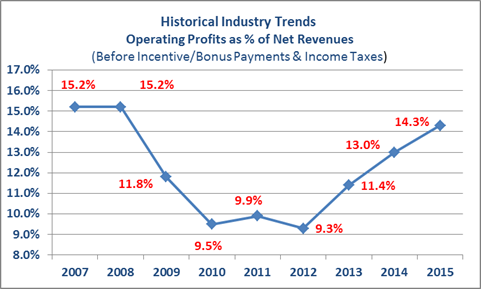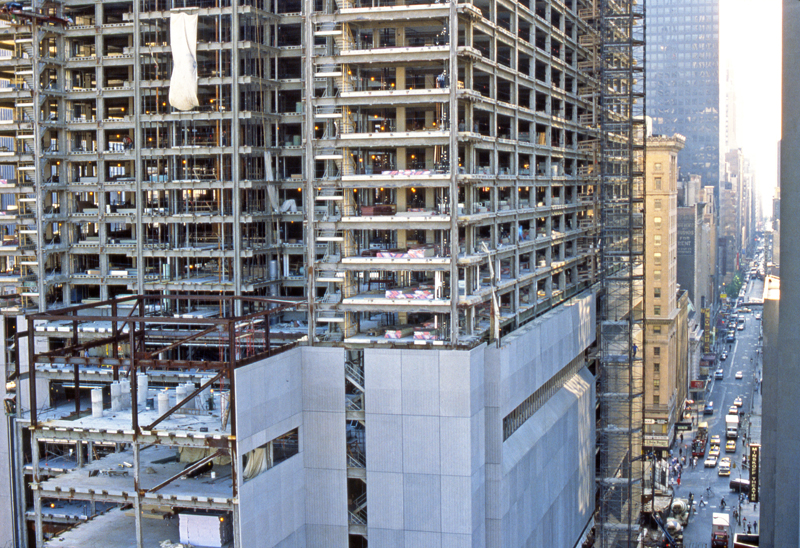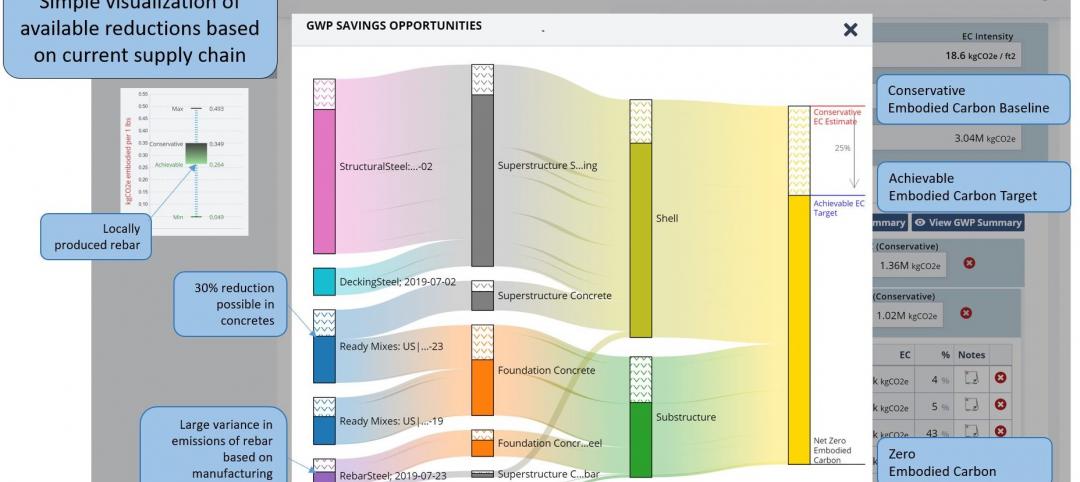Median A/E firm operating profit margins on net revenue (before incentive/bonus payments and taxes) have been on a steady rise in recent years, reaching a six-year high of 14.3% this year, according to business consulting firm PSMJ Resources’ 2015 A/E Financial Performance Benchmark Survey Report.
After posting all-time highs in 2007 and remaining stable in 2008, profit margins started to decline significantly beginning in 2009, due to the severe downturn in the economy. But, median profit margins on net revenue have been on the upswing in the past three years, hitting 11.4% and 13.0% in the 2013 and 2014 surveys, respectively—which, along with the 2015 data, supports the notion that backlogs are filling back up.

“It is certainly encouraging to see profit margins trending upward. But, there is another side to this coin. Just because the median has reached 14.3%, that doesn’t mean it should be an acceptable profit margin at all for an A/E firm,” says Frank A. Stasiowski, FAIA, Founder and CEO of PSMJ Resources. “There are plenty of A/E firms that can and do deliver profit margins far higher than this. These are the firm leaders who are able to really think differently—about project delivery, about marketing strategy, about value. Deliver a higher value and you can command higher fees…and yield higher profits.”
With data from 328 A/E firms across the United States and Canada, the 2015 PSMJ A/E Financial Performance Benchmark Survey Report is the go-to industry resource for firms wanting to increase cash flow, lower overhead, and improve overall financial results. Now in its 35th edition, the comprehensive report provides the most valuable research and insight available for making critical decisions that impact the success of a firm.
Related Stories
Office Buildings | Mar 3, 2015
Former DuPont lab to be converted into business incubator near UPenn campus
The new Pennovation Center will provide collaborative and research spaces for educators, scientists, students, and the private sector.
K-12 Schools | Mar 2, 2015
BD+C special report: What it takes to build 21st-century schools
How the latest design, construction, and teaching concepts are being implemented in the next generation of America’s schools.
Codes and Standards | Mar 2, 2015
Proposed energy standard for data centers, telecom buildings open for public comment
The intent of ASHRAE Standard 90.4P is to create a performance-based approach that would be more flexible and accommodating of innovative change.
K-12 Schools | Mar 1, 2015
Are energy management systems too complex for school facility staffs?
When school districts demand the latest and greatest, they need to think about how those choices will impact the district’s facilities employees.
Industrial Facilities | Feb 27, 2015
Massive windmill will double as mixed-use entertainment tower in Rotterdam
The 571-foot structure will house apartments, a hotel, restaurants, even a roller coaster.
Office Buildings | Feb 26, 2015
Using active design techniques to strengthen the corporate workplace and enhance employee wellness
The new Lentz Public Health Center in Nashville, Tenn., serves as a model of how those progressive and healthy changes can be made.
K-12 Schools | Feb 26, 2015
Should your next school project include a safe room?
Many school districts continue to resist mandating the inclusion of safe rooms or storm shelters in new and existing buildings. But that may be changing.
K-12 Schools | Feb 26, 2015
Construction funding still scarce for many school districts
Many districts are struggling to have new construction and renovation keep pace with student population growth.
K-12 Schools | Feb 26, 2015
D.C.'s Dunbar High School is world's highest-scoring LEED school, earns 91% of base credits
The 280,000-sf school achieved 91 points, out of 100 base points possible for LEED, making it the highest-scoring school in the world certified under USGBC’s LEED for Schools-New Construction system.
K-12 Schools | Feb 25, 2015
Polish architect designs modular ‘kids city’ kindergarten using shipping container frames
Forget the retrofit of a shipping container into a building for one moment. Designboom showcases the plans of Polish architect Adam Wiercinski to use just the recycled frames of containers to construct a “kids city.”

















